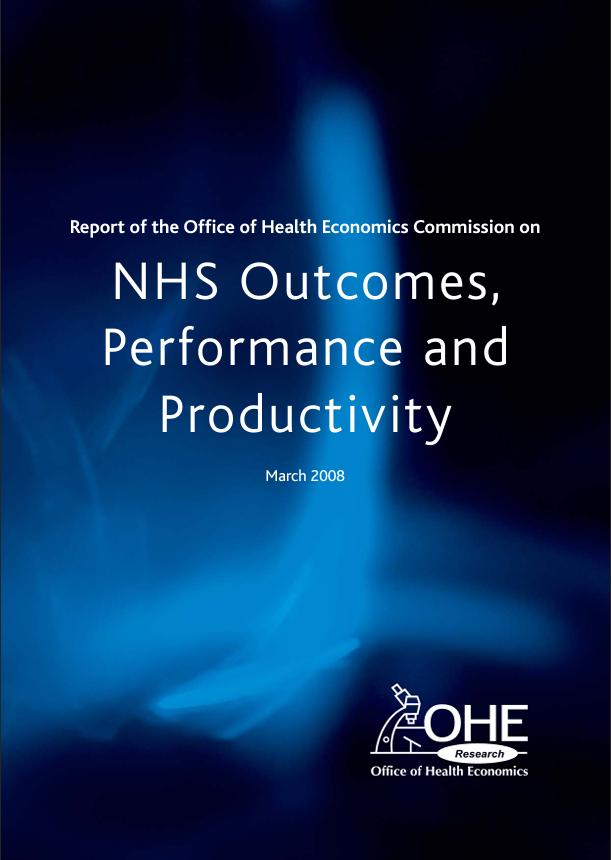Unlocking the Value of Combination Therapies

About one pound of every eleven spent in the UK goes to health care, most to NHS care. A large body of data is available on health care inputs and expenditures; far less is known about the outcomes that the resources and activities produce. Yet, knowing the outcomes achieved by health services is essential to being able to achieve the greatest benefit, the best patient care, from the resources used. The effectiveness, efficiency and accountability of the NHS all depend on knowing the outcomes it is achieving.
With that in mind, the OHE established a Commission on NHS Outcomes, Performance and Productivity in autumn 2006. A distinguished panel of commissioners was assembled, providing a range of essential skills and perspectives at a senior and expert level, covering: economics, medicine, epidemiology, management and policy; public and private health care sector viewpoints; and health professional, patient and general public perspectives. To inform the Commission’s deliberations, input from an impressive range of researchers, managers and health care professionals was arranged.
The Commission’s terms of reference were to:
To better analyse the issues raised by outcome measurement across the spectrum of NHS activities, the OHE Commission selected ‘tracer’ diseases for four dimension: acute and long-term conditions, primary and secondary care, care that extends life, and care that improves its quality. The four diseases and conditions are: elective surgery for hip and knee replacement, hernias, varicose veins, cataracts; mental health; chronic obstructive pulmonary disease; and colorectal cancer.
The overall conclusion of the OHE Commission is that the collection and use of outcomes measures in the NHS is both practical and essential. It can be expected to lead to improved outcomes, performance and productivity, thereby providing significant benefits to patients. A number of specific recommendations, across the levels of activity in the NHS, are offered.
NHS Outcomes, Performance and Productivity

